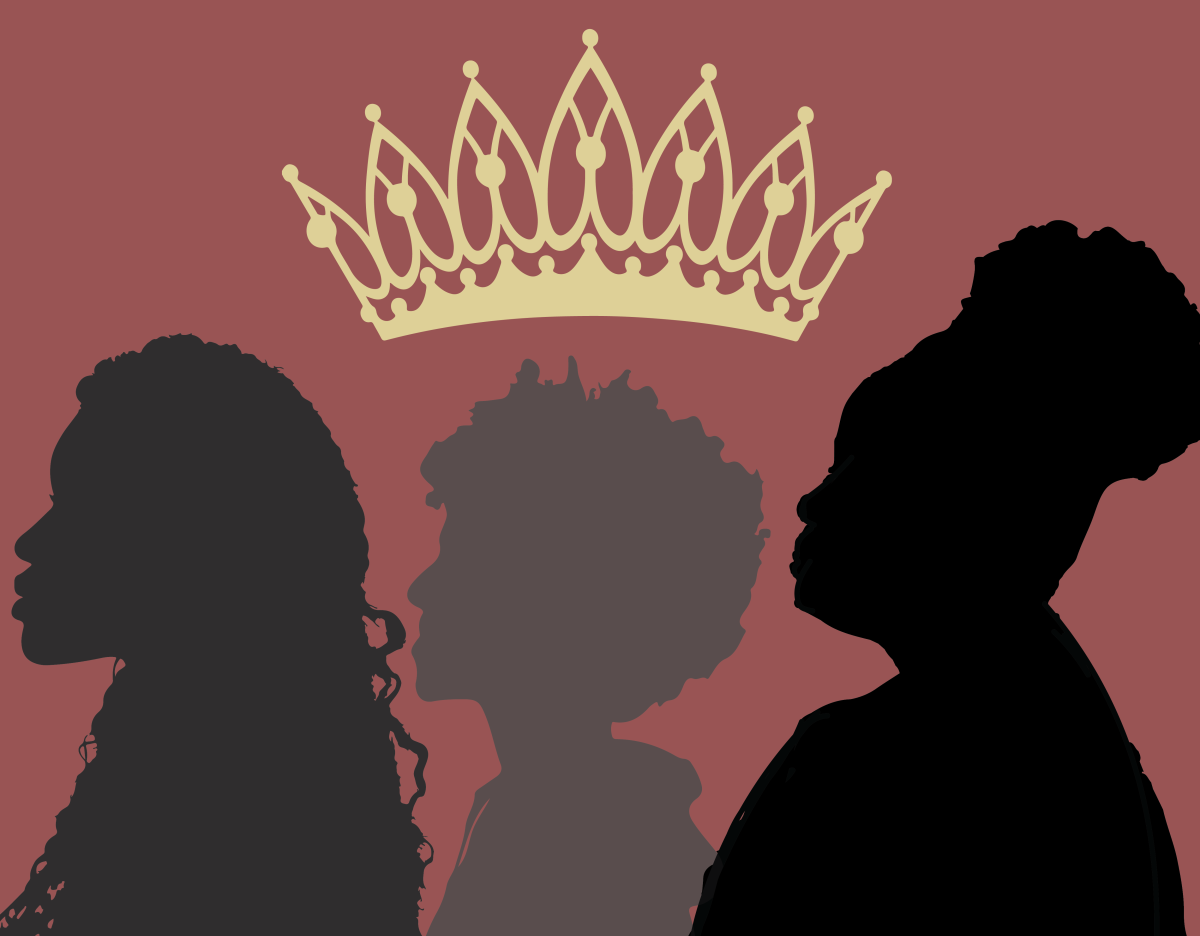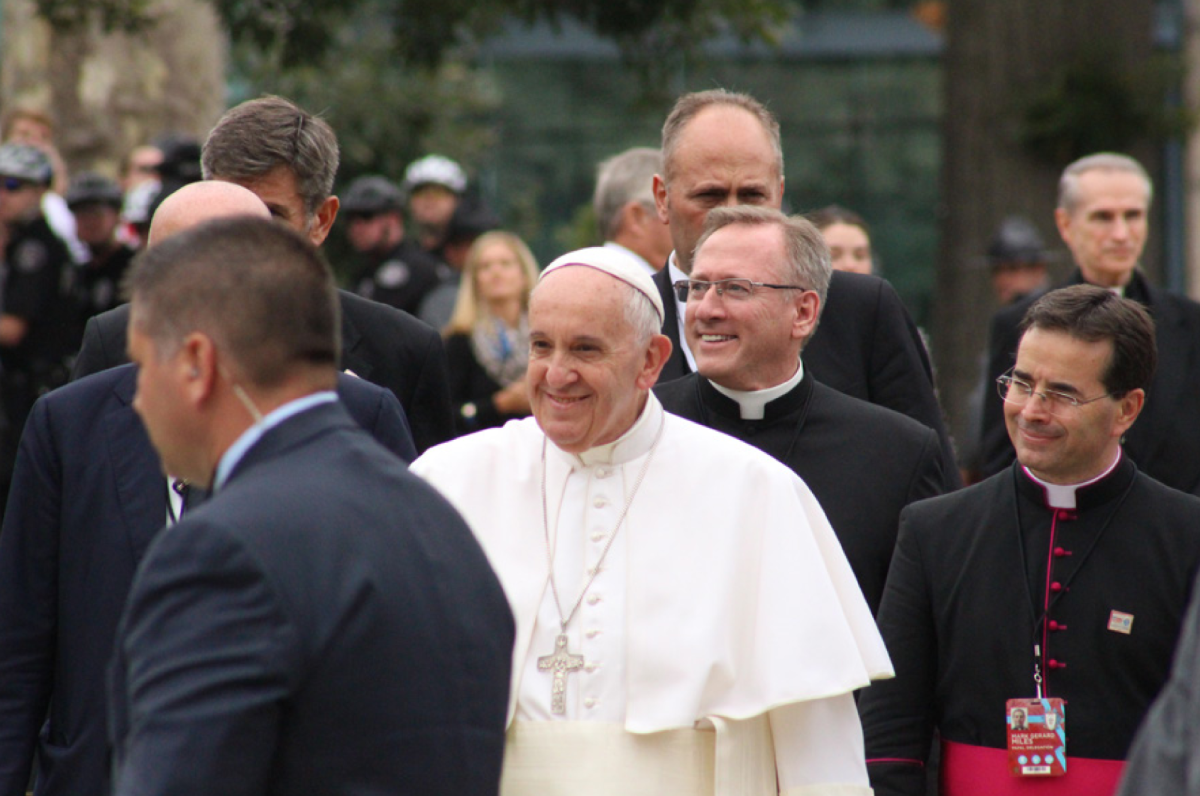Hair for the Black community is deeply rooted in culture and identity, and many Black women will go through a “hair journey,” in which they will explore different protective and natural styles as a part of self discovery.
Embracing one’s natural hair also serves as a way of decentering whiteness, where straight and non-textured hair is seen as “good” hair.
Aisha D. Lockridge, Ph.D., associate professor of English, said she’s had locs for about 20 years. But for her, coming to wear her hair as she does was her own personal journey.
“My mother cut off all of her hair when she was 18. My mother has really short hair, always had a tiny, tiny afro, but she didn’t insist that I do that,” Lockridge said. “She was like, ‘You’ve got to find your own way with your hair, it’s not my journey, it’s your journey.’”
Protective styles, like Bantu knots, locs, braids and twists, are exactly as the name suggests: to protect the natural hair from breakage and damage. These styles, along with coils and curls, are just a few of the common hairstyles that are popular within the Black community.
These styles are also often used as a basis of discrimination rooted in anti-Black racism.
“It’s race-based hair discrimination, not the color of the hair or the length, but thinking about how hair texture and hairstyle are connected to Black culture and even a representation of racial phenotype,” said Afiya Mbilishaka, Ph.D., a licensed clinical psychologist, research scientist and hair stylist based in the Washington, D.C. area.
Mbilishaka said hair discrimination has been used as a way around anti-discrimination legislature, as original laws fail to include hair as a marker of appearance discrimination.
“The Civil Rights Act of 1964 said that it was illegal for folks to discriminate based on race,” Mbilishaka said. “However, there is this little loophole that hair being a representation of race was not included in the Civil Rights Act.”
Serving as a means of fighting hair discrimination, the Creating a Respectful and Open World for Natural Hair (CROWN) Act is a law that advocates for Black women’s naturally textured hair and protective styles.
The CROWN Act began as a campaign led by the Crown Coalition, founded by Dove, National Urban League, Color of Change and Western Center on Law and Poverty, and was first passed into law by California’s Congress on July 3, 2019.
Currently, 14 states and 34 cities and counties have signed the CROWN Act into law. This legislation was referred to the Pennsylvania Senate in September 2020, but has not yet been passed.
Dove CROWN 2021 Research Study for Girls found that 53% of Black mothers whose daughters experienced hair discrimination say their daughters experienced it as early as five-years old. Dove also found that Black women are 1.5 times more likely to be sent home from work because of their hair.
The goal of the CROWN Act is to prohibit “race-based hair discrimination, which is the denial of employment and educational opportunities because of hair texture or protective hairstyles including braids, locs, twists or bantu knots,” according to the founding website.
Dove did not respond to questions from The Hawk.
Mbilishaka is also the CEO and founder of PsychoHairapy, a global mental health and hair movement that aims to use hair as an entry point into mental health care. She said she has testified about the psychological impact of hair discrimination and testified before U.S. Senators and Representatives for the CROWN Act.
“I’d been noticing with a lot of my hair clients and therapy clients that people have these very deeply distressing experiences as it relates to their hair,” Mbilishaka said. “So I began researching this topic and have published a lot on hair discrimination within Black communities. [I] then was able to apply my research in the early days of the CROWN Act when there actually weren’t that many studies on hair discrimination.”
Mbilishaka said she has found that children K-12 tend to be the most affected by hair discrimination.
“I think sometimes the focus is on hairstyle, but it really, according to my data, gets into hair texture, hair product and hair density,” Mbilishaka said. “It even gets into other senses, like the smell of hair, based on the products where children are kicked out of classes because they have coconut oil smell coming from their hair.”
As a Black woman working in academia, Lockridge said she has had to navigate embracing her natural hair while also trying to avoid assumptions about Black hair.
“I certainly styled my hair in certain kinds of ways and wore certain kinds of clothing, trying to make myself seem palatable to people who were either racist, like outwardly racist, or people who just didn’t have very much experience with Black people,” Lockridge said. “But, in the second part of my career, I did the exact opposite.”
Like Lockridge, many Black women have begun to embrace what their natural hair means for them regardless of how others perceive it.
Jala Cosley ’22, founder and president of SJU Naturals, a campus organization that promotes personal health, has always embraced the versatility of her hair and encourages other Black women to do the same.
“Natural hair just means expression, that is really what makes it so good,” Cosley said. “We choose who we are. We can go from braids to weave to natural. No one can tell us who we are. It’s your crown.”










































